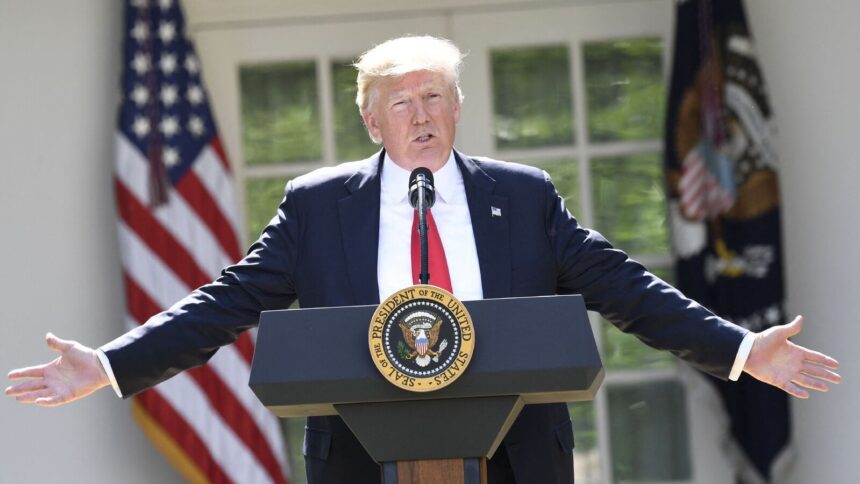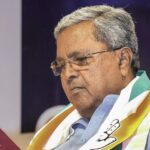In his inaugural address, Donald Trump declared that during his time in office, “we will not forget our constitution.” However, by the end of the day, he had signed an executive order that could potentially abolish birthright citizenship, a right assured by the 14th Amendment to the Constitution. According to the amendment’s clear wording, “all persons born or naturalised in the United States, and subject to the jurisdiction thereof, are citizens of the United States.” Mr. Trump contends it does not imply what it appears to indicate.
According to Mr. Trump’s order set to take effect next month, the federal government will deny the issuance of “documents recognizing American citizenship” (presumably passports) to newborns unless at least one parent is a citizen or a permanent resident of the United States. Consequently, children born in the U.S. to undocumented immigrants would be excluded. This would also impact about 3 million individuals residing in America on exchange, work, or student visas.
A relatively small number of wealthy nations automatically confer citizenship to anyone born on their soil (though Canada does, as do most Latin American countries). The U.S. adopted this policy following the Civil War. The Constitution was amended to reverse the Dred Scott decision of 1857, which ruled that black individuals were not Americans. The 14th Amendment ensured that freed slaves and their offspring would become citizens henceforth.
The Trump administration argues that the 14th Amendment “has never been understood to provide citizenship universally to everyone born within the United States.” This assertion is technically accurate in a narrow context. The children of foreign diplomats, who are beyond the reach of U.S. law, have historically been excluded from American citizenship, based on the jurisdiction clause. Prior to the passage of the Indian Citizenship Act in 1924, some Native Americans also faced exclusion. However, Mr. Trump appears to interpret the jurisdiction clause in a manner that would exclude a far wider range of individuals.
To back this up, he references fringe theories that have garnered traction among right-wing circles since the early 1990s. Republican lawmakers in Congress have repeatedly introduced legislation aimed at ending birthright citizenship, but none have advanced beyond committee stages, according to Peter Spiro from Temple University in Philadelphia. The argument posited is that when the framers of the amendment mentioned “jurisdiction,” they actually intended “allegiance.” This view appears to be “reverse-engineered,” suggests Mr. Spiro.
Since the Supreme Court’s ruling in United States v Wong Kim Ark in 1898, American law and practice have maintained that birthright citizenship extends to the children of foreigners, according to Alison LaCroix from the University of Chicago’s law school. In this case, a child born in America to Chinese immigrants challenged his exclusion from re-entry. Ms. LaCroix argues that a president cannot revoke over a century of constitutional interpretation through an executive order. Had this rule been in place during the 1960s, it would have barred Kamala Harris from being recognized as a citizen.
Mr. Trump’s directive seems unlikely to withstand legal scrutiny, even with a sympathetic Supreme Court. Yet, even if it were to be upheld, putting it into practice would be challenging. When applying for passports, Americans only need to present a birth certificate to validate their citizenship; these documents currently do not indicate the parents’ citizenship or immigration status. Additionally, birth certificates are issued by local authorities, making rapid changes unlikely, particularly in Democratic states. To exclude children of non-citizens, all applicants would need to furnish additional documentation.
Abolishing birthright citizenship could lead to some unintended consequences. Although work visas and similar permits are ostensibly temporary, many individuals hold them for years or even decades and raise families during that time. Particularly, due to a federal cap on the number of green cards allocated to residents from any one country, individuals from India and China often find it nearly impossible to achieve permanent residency. Their children could consequently be denied citizenship, leaving their legal status uncertain. Effectively, some legal immigrants would give birth to undocumented “immigrants.”
The impact of removing birthright citizenship in tandem with the existing immigration laws would result in an expanding group of second-class residents—non-immigrants who will never gain citizenship. Fortunately, Mr. Trump likely lacks the authority to actualize this change.
Stay informed about American politics with The US in brief , our daily newsletter providing swift analysis of significant political happenings, along with Checks and Balance , a weekly note from our Lexington columnist discussing the state of American democracy and the vital issues facing voters.
© 2025, The Economist Newspaper Limited. All rights reserved. The original content is available on www.economist.com










